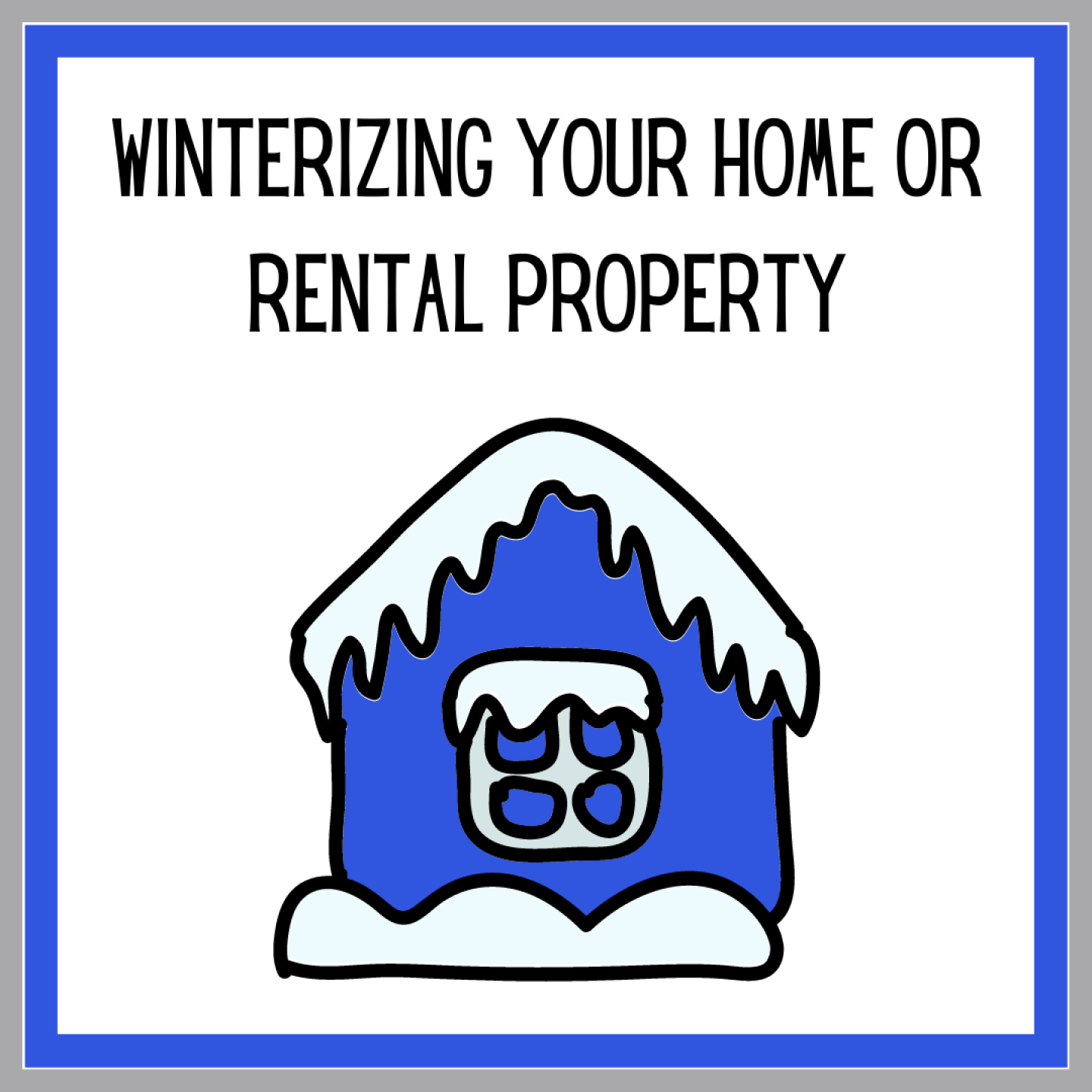Did you know that about 250,000 homes are damaged by frozen and burst pipes each year? Many of these estimated 4 to 5 Million dollars in damages will be experienced here in New Jersey where it's not uncommon to have summer home at the shore, or up in the woods of PA or NY - all areas that enjoy both a hot summer, and frigid cold winters.
While our team can help you winterize locally, many of our clients have faced these preventable problems with other out-of-area properties. Which is why we'd like to arm you with the facts you need to properly winterize your home.
Winterizing Your Home:
1. Turn off the water supply to the house. The main water valve is usually near the water meter on the home’s exterior, or in the basement.
2. Drain water pipes. Do this by: Starting by turning on the faucets from top to bottom in sinks and showers and tubs, until no water runs.
3. Pour RV antifreeze into the drains and toilets to prevent any remaining standing water from freezing.
4. After pouring antifreeze into the drains, cap them. Cover the toilet with plastic wrap. This will stop the possibility of sewer gas from entering the house through the drains.
5. Shut off power and water to your water heater and drain it.
6. Drain the pool, if you have one. This is a several step procedure, involving a submersible sump pump. You may want to consider hiring a pool specialist.
7. If feasible, turn down the thermostat to 55 degrees, generally considered to be warm enough to prevent the pipes from freezing.
8. If not running your heater, first consult your user heating unit's manual. Some units require specific methods for draining water and may require antifreeze. Others do not. An HVAC specialist or Master Plumber may be needed to do this properly or even to guide you the first time you winterize the property.
9. Clean your gutters. Many post-winter leaks aren't from your pipes at all. Ice dams can cause significant damage and you want to ensure good flow in your gutters. Be wary of gutter guards as they have been known to exacerbate ice dams. Trim back any branches that may be dropping debris into your gutters as well.
10. Unplug all appliances.
11. Winterize your outdoor spigot (This applies to your year round home as well!) Disconnect your hoses and drain them. If you have an interior shut off valve to your spigot, shut the water off. Otherwise, insulate your spigot. Consider a faucet cover, which is a padded dome that can be placed over your spigot through the winter.
Remember, it is best to do this right. Water damage can be financially devastating to a property, and more so for properties that are unattended. Do not be shy about asking for professional assistance if you are worried you don't know the proper way to winterize your pipes.


Recent Comments